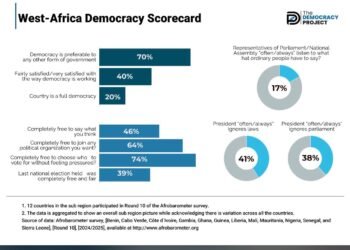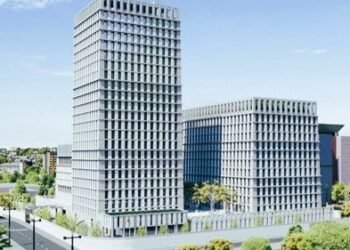In Ghana, each election year brings promises of change and progress. However, amidst these ambitions, the critical necessity for stability and continuity in the nation’s development trajectory is often disregarded.
The recurrent shift between party manifestos, similar to a pendulum swinging back and forth, fails to provide the sustained direction necessary for long-term growth and prosperity.
Ghana, endowed with abundant natural resources and a vibrant population, possesses immense potential for economic advancement.
However, the lack of a solid national development plan, insulated from the transient agendas of political parties, has hindered the country’s ability to harness its full capabilities.
The problem with relying solely on party manifestos lies in their inherent temporality. Manifestos, crafted to appeal to voters and secure electoral victory, often prioritize short-term gains over enduring progress.
Consequently, policies implemented based on these manifestos are subject to change with each shift in political power, leading to inconsistency and fragmentation in governance.
Furthermore, the emphasis on partisan agendas perpetuates a cycle of politicking that detracts from the urgent issues facing Ghana.
Instead of focusing on long-term strategies for infrastructure development, human capital investment, and sustainable economic growth, attention is diverted towards election sloganeering and scoring cheap political points.
A solid national development plan (not just ‘semblances’ of a national development plan in the 1992 Constitution), on the other hand, offers a coherent framework for guiding Ghana’s progress irrespective of political transitions.
Such a plan, rooted in extensive consultation with stakeholders across sectors, would outline clear objectives, timelines, and strategies for achieving sustainable development goals.
By transcending the short-term interests of political parties, a national development plan fosters continuity and consistency in policy implementation.
It provides investors, both domestic and foreign, with the confidence necessary to commit to long-term projects that drive economic growth and job creation.
GUTA’s 20-point Agenda, Compass For Political Parties
The Ghana Union of Traders (GUTA) has unveiled a 20-point agenda to guide political parties craft their campaign manifestos.
Even though the 20-point agenda is not comprehensive enough as compared to a national development plan, it is at least a step in the right direction as it focuses the policies of parties on a target.
GUTA urged political parties to prioritize policies that support entrepreneurship and commerce and underlined the need to foster a conducive business environment.
Speaking to journalists after meeting with the leader of the Movement for Change, Alan Kyerematen in Accra, GUTA President Dr. Joseph Obeng said political parties must think of businesses.

“We have itemized about 20 points and discussing with them [political parties] to factor them into their manifesto programmes and I think so far so good, we are very impressed with what is going on. Everything has been issue-based and we are discussing this passionately and everybody has conducted themselves well. The cost of doing business is our major concern.”
“The VAT structure is also a major concern. The import substitutions that have been coming back and forth are also a concern. So we have a whole lot of things that we are discussing, how to even industrialize the nation moving from trading to manufacturing and all that.”
Dr. Joseph Obeng
Moreover, a national development plan encourages accountability and transparency in governance by setting measurable targets and benchmarks for progress.
It empowers citizens to hold their leaders accountable for not delivering on promises made in the pursuit of national development.
The experience of countries like Singapore and South Korea underscores the transformative power of sustained planning and execution in driving economic development.
These nations prioritized long-term vision over partisan politics, resulting in remarkable socio-economic progress within a single generation.
As Ghana strives to realize its vision of becoming a prosperous and inclusive nation, it must transcend the limitations of party manifestos and embrace the discipline of national planning.
The time is ripe for political leaders, civil society, and the private sector to come together to craft a comprehensive national development plan that transcends political cycles and lays the foundation for a brighter future.
READ ALSO: NewGold ETF Sees Downturn After Seven Consecutive Gains























